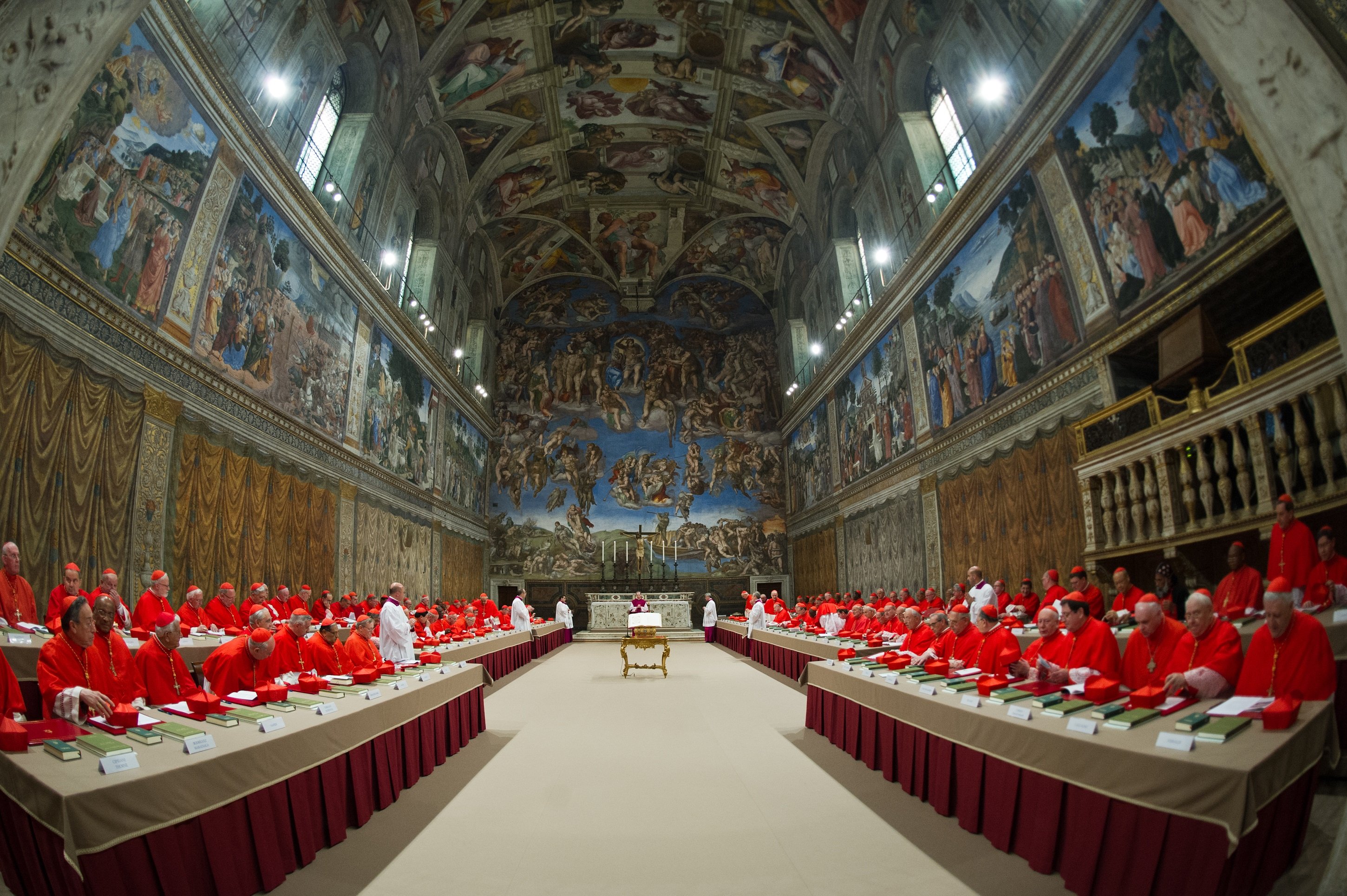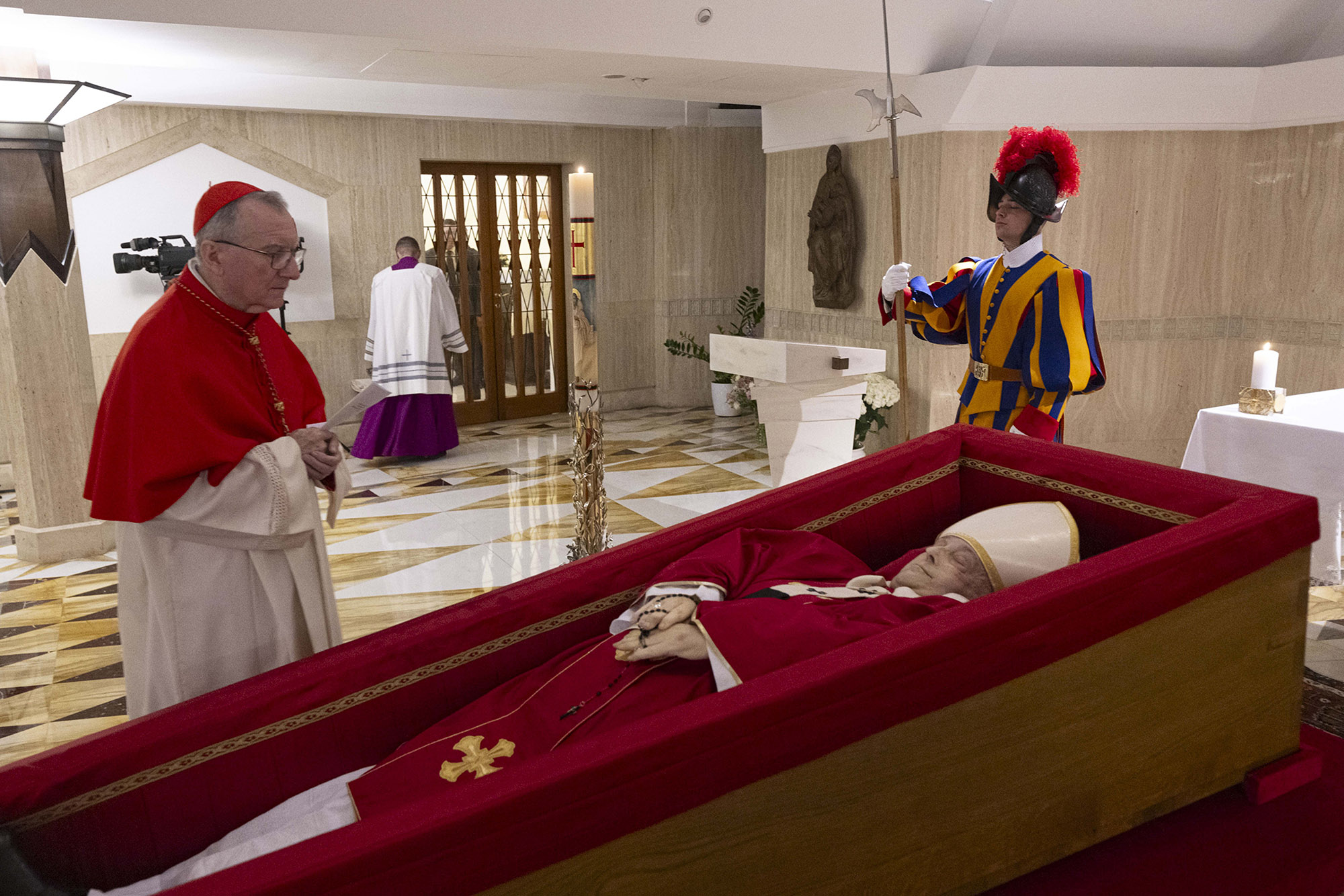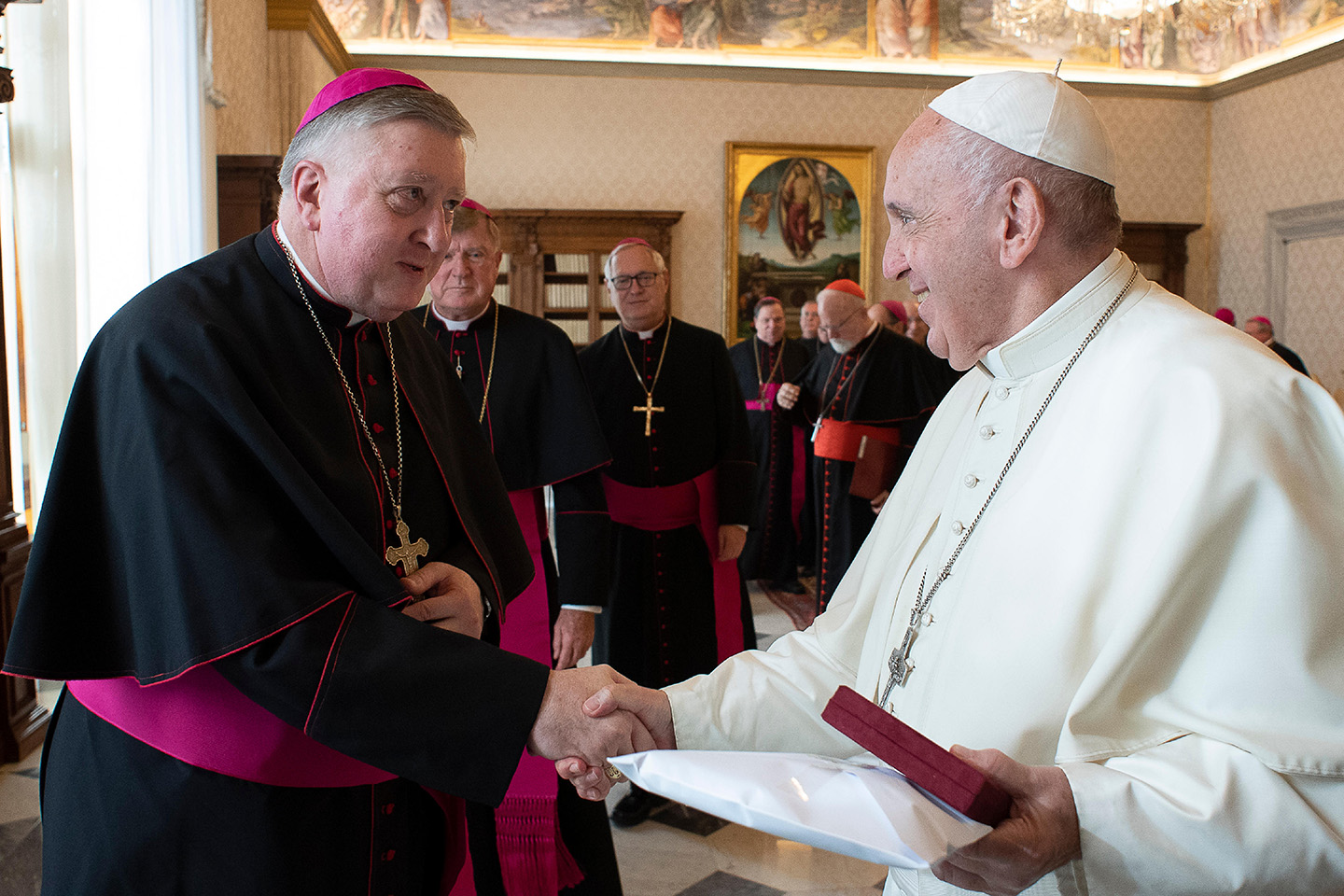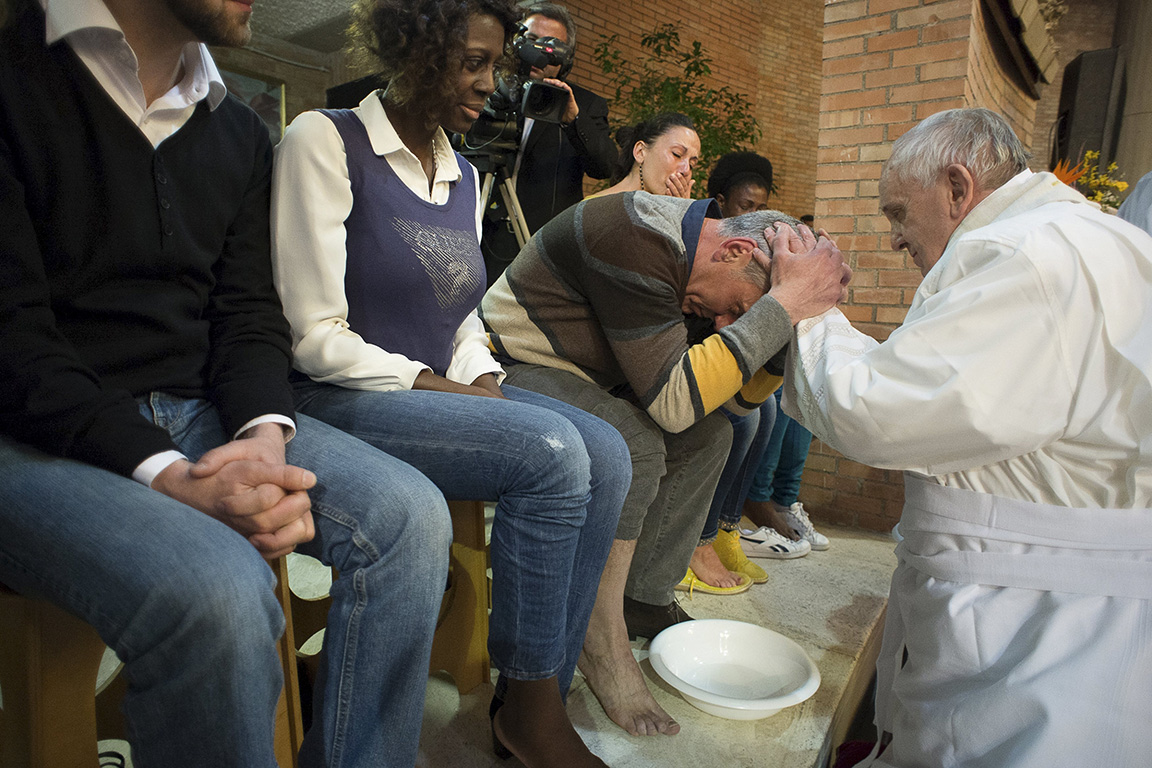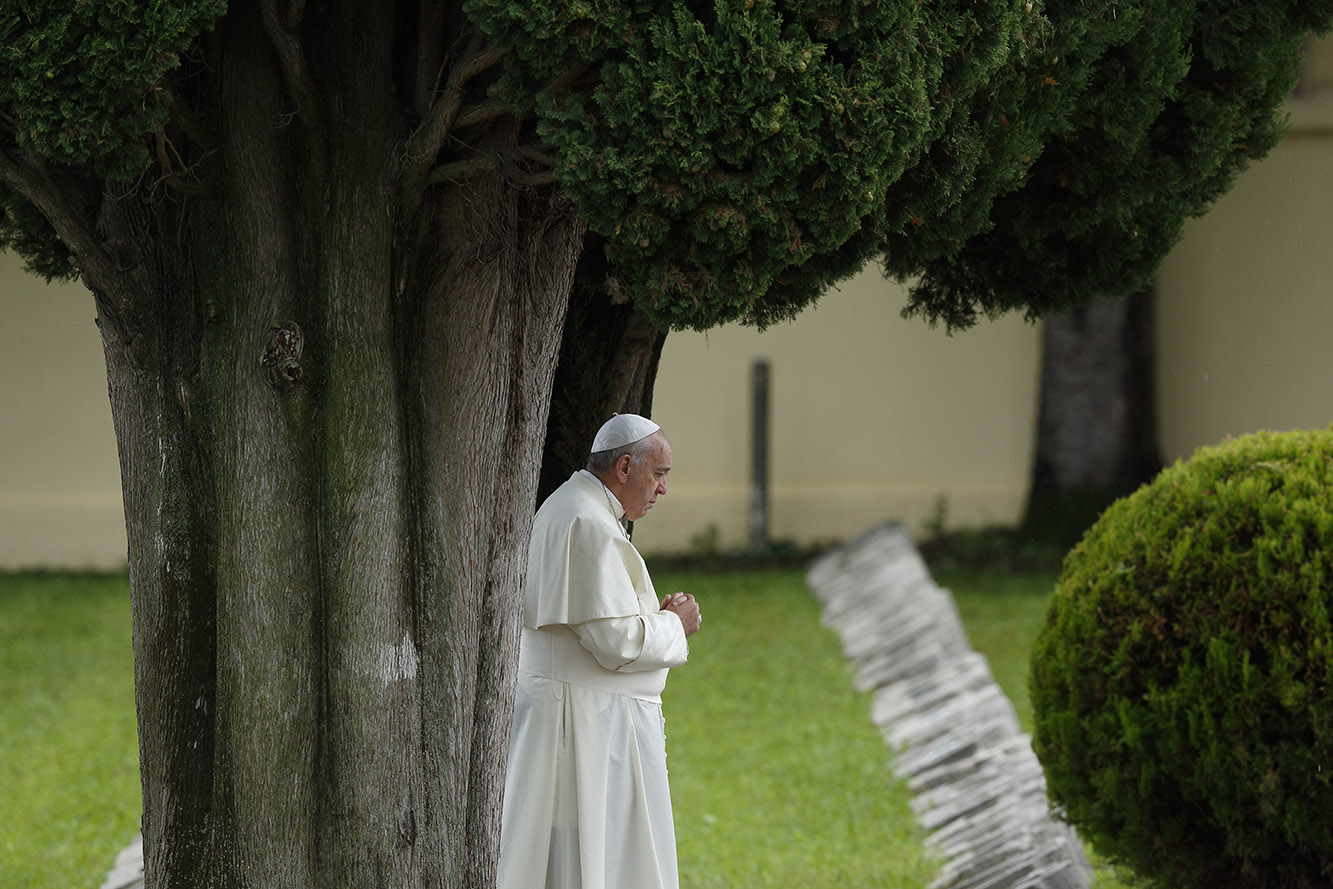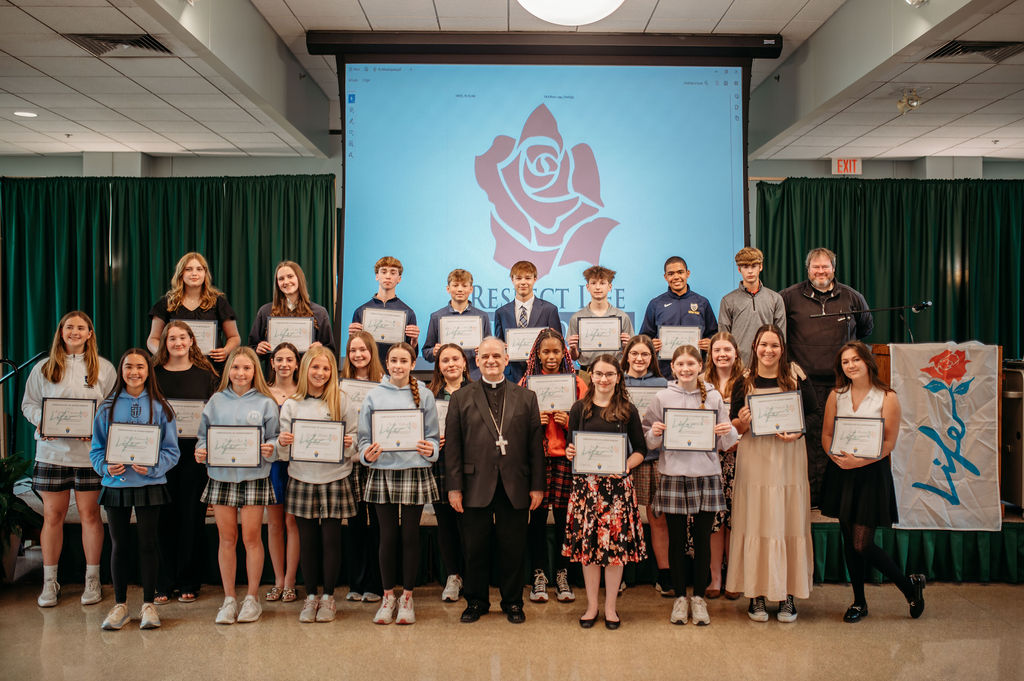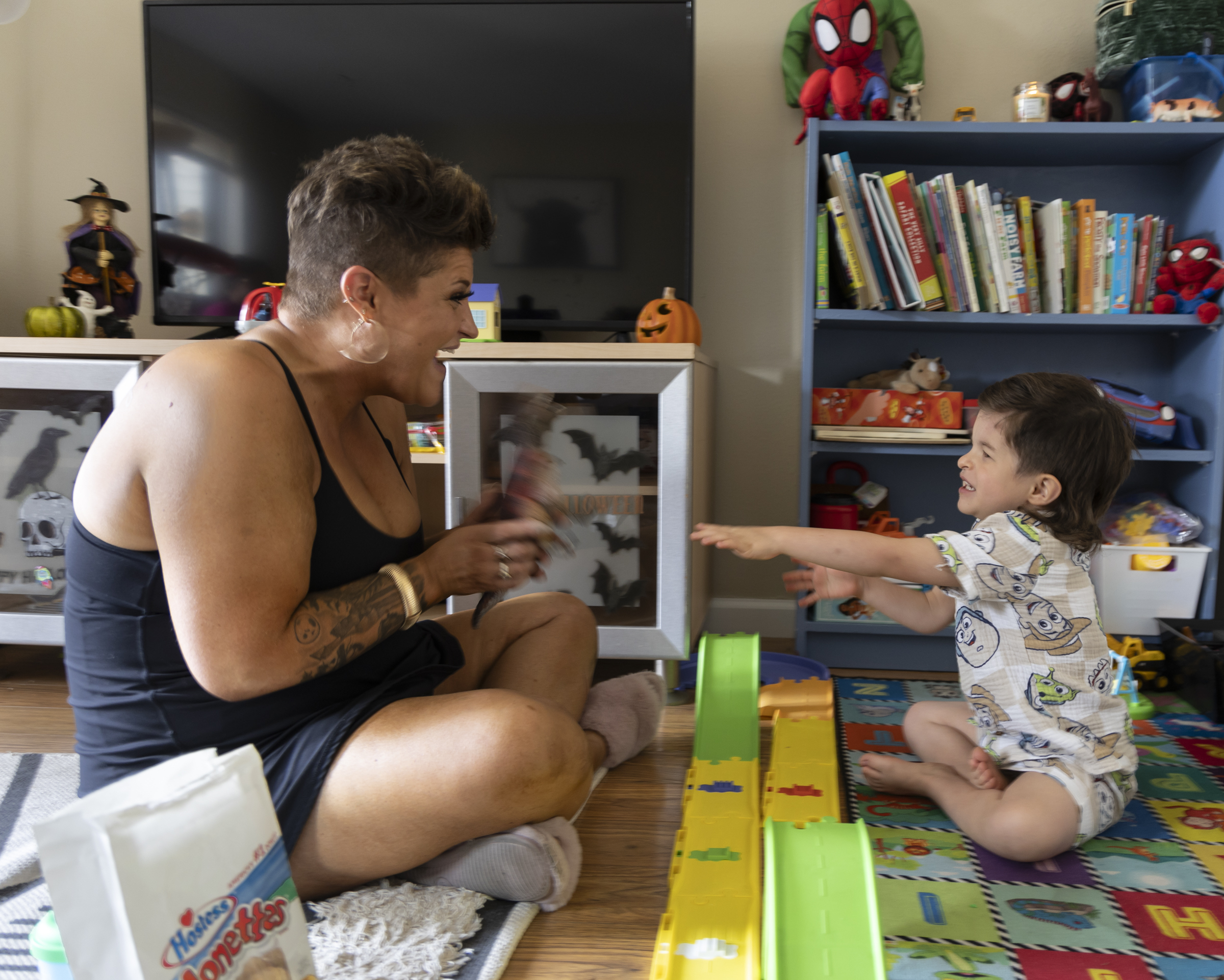Law firm brings comfort to human trafficking victims

Catholic attorney at Bakhita Law uses faith, law to fight human trafficking
Comfort was raised in Liberia in a foster family after being taken away from her birth mother and treated as a domestic servant rather than as a family member. Although Christian, she was raised as a Muslim, she said, and “told what to be, how to dress, how to act.”
She felt lucky that she was allowed to go to grade school and high school — afraid to speak out in fear that her foster mother would take her out of school or put her on the street. Later, the foster mom worked to block her acceptance into the field she wanted to go into in college. “I felt so controlled. I never had a life,” Comfort said. (The St. Louis Review agreed to omit Comfort’s last name for safety.)
Comfort came to the United States to accompany her foster mother on a business trip and stayed because of an Ebola outbreak in Liberia. She continued to be abused, she said, and two years ago at age 19 — even though her foster mother hid her passport — she packed a shirt and jeans, fleeing her home on the East Coast, eventually traveling to St. Louis.
She turned to the Internet to find help. A social service agency recommended that she contact Kate Lloyd at Bakhita Law, a nonprofit specializing in helping survivors of human trafficking, restoring their rights and helping them build lives filled with purpose and joy.
“I didn’t have anybody, I didn’t know what to do,” Comfort said. “I felt like I was going to hurt myself. If I hadn’t met her, I don’t know where I’d be right now.”
Comfort’s mother was taken at age 13 and married off to a much older man with multiple wives and at least 53 children. After he died, Comfort’s mother became pregnant with a Christian man, and their baby — Comfort — was taken away.
Comfort told Lloyd her life story and felt relief. “Ever since then she’s been there for me,” Comfort said. Lloyd was “the first person who really believed me. People would tell me to go back to my home country. I didn’t have anybody to go to, a home to go to. And they’re telling me to figure this out for myself when I’m begging them for help.”
Her case was complicated, but Bakhita Law has the luxury of spending time on cases of domestic servitude, sexual exploitation and labor trafficking cases. Lloyd helped Comfort with her immigration status, found other agencies to assist her and most importantly was there to listen and guide her. With Lloyd’s help, Comfort, who recently married a man she met in St. Louis, is hoping to go to college to study architecture and Internet technology. She’s looking to volunteer her talent in art to teach children from unstable families.
Foreign-born clients are brought to this country by traffickers, and Lloyd’s first step is to obtain a protected status for them. The government provides protection to victims of severe forms of human trafficking, which allows law enforcement to keep witnesses in the United States and protect the victims.
Most of Lloyd’s clients still are hiding from traffickers. One client moved to a different state and was living with a foster family. She was found again by traffickers but was able to flee. “It’s a life-and-death situation for them and their families,” Lloyd said.
Most of her clients are from North Africa, but she also has clients from Mexico and Central America. Some clients are U.S. citizens from St. Louis. They have endured torture, forced marriage as a child bride, victimization by terrorist organizations, forced abortions and more.
Naming her program Bakhita Law reflects Lloyd’s deep Catholic faith. St. Josephine Bakhita was a native of Sudan who was captured at age 7 and sold into slavery. After being bought and sold a dozen times, sometimes beaten, she was bought by the Italian vice consul, brought to Italy, eventually won her freedom and entered the Canossian Sisters. “As our model, St. Bakhita suffered so much but died as a woman with great joy,” Lloyd said. “That’s really the focus with our clients, moving them not only through the legalities — the immigration system, holding their hands during the criminal proceedings of their traffickers — but also helping them rebuild their lives, looking toward the future, enrolling in school, finding meaningful work, joining faith communities, making sure they have safe living conditions and food.”
Lloyd attended All Saints School in St. Peters and Incarnate Word Academy in north St. Louis County. She is a parishioner at Holy Trinity in St. Ann.
She attended Ave Maria University in Florida, earning a bachelor’s degree in English literature. She worked at Our Lady’s Inn in St. Charles, a home with services for homeless pregnant women and their children. Earlier, she worked with the Society of the Most Holy Trinity in Belize and a reservation in North Dakota. She took classes at Angelicum University in Rome as part of her credits for a minor in theology at Ave Maria.
Lloyd later obtained a law degree from Ave Maria. She was attracted to the university in part because of its clinic for human trafficking victims. She also encountered abuse of women and trafficking while working in Belize. Helping victims was something she found rewarding and in line with her faith.
St. Louis is ranked a top 20 hot spot for trafficking by the U.S. Department of Justice. Lloyd opened Bakhita Law in 2015 on the feast of St. Josephine Bakhita. Now it has a caseload of about 25 clients and in 2017 served almost 300 people in its education and outreach programs.
Community support includes a trivia night and auction with items donated by about 60 local businesses. Catholic Charities is one of the law firm’s referral agencies, providing counseling services.
Lloyd’s faith is a big part in her work. When St. John Paul II came to St. Louis, she heard him speak to young people, telling them they have a responsibility to serve. “That made a huge difference in my life,” she said. It helps her deal with the inhuman treatment of the victims. “The strength for this work comes from adoration and devotion to the Eucharist,” Lloyd said.
Clients are referred by other attorneys, social service providers, law enforcement and other clients.
>> Trafficking
While sex trafficking is the majority of cases handled by Bakhita Law, some cases involve labor trafficking, when people are forced to work without proper pay or in debt bondage. “Usually it’s a bait and switch,” said Kate Lloyd. “They come in with a work visa and then their documents get taken away from them. Also common is they’re promised a lot of money, but they have to mortgage their homes and take out loans in their home country” to pay for the travel and other arrangements.
When the victims receive their pay, deductions are made for housing and transportation to the work site and “they’ve made almost nothing and their debt is growing in their home country. I’ve seen men who are fathers of young families who think they have a wonderful opportunity. They mortgaged their home and land their families have had for generations. They come to the U.S. thinking they’re going to work for a couple months and go home. But instead the lives of their families are threatened if they don’t continue to work,” Lloyd said.
It’s a growing problem in agriculture, but also construction, food service and domestic service, Lloyd said. In 2016, approximately 8,000 cases of human trafficking were reported to the National Human Trafficking Resource Center Hotline.
For information on the U.S. bishops’ anti-trafficking program, visit http://www.usccb.org/about/anti-trafficking-program/.
>> To help
Bakhita Law is a nonprofit community organization that represents individuals affected by human trafficking and other forms of exploitation. It provides legal services, social service connections and education to represent and protect the human dignity of people who have been trafficked or exploited.
Bakhita Law also is beginning a sexual exploitation prevention program that helps children at high risk develop relationships with mentors who will assist them develop their God-given talents and recognize their dignity as a human person. Foster children and runaways are exceptionally vulnerable for trafficking. According to the National Center for Missing and Exploited Children, one in six runaways are believed to be victims of sex trafficking, and 86 percent of those trafficked children were in foster care or social services.
Volunteers are sought to mentor at-risk children.
A trivia night fundraiser for Bakhita Law is planned at 7 p.m. Saturday, April 21, at St. Peter Parish in St. Charles. For information about Bakhita Law or to donate to help survivors of human trafficking, visit www.bakhitalaw.org or write to Bakhita Law, 3466 Bridgeland Drive, #200, Bridgeton, MO 63044.
>> St. Josephine Bakhita
St. Josephine Bakhita, known as the saint of the Sudan, was born around 1869 and taken into slavery as a young girl. The sufferings she endured were so severe that she could not recall her name. Through the help of a group of religious sisters in Italy, she was freed from slavery in 1889. She spent her remaining years with the sisters and became known as a woman of great joy.
Bakhita Law is named in honor of St. Josephine Bakhita in the hope that its clients also will come to know the same joy St. Josephine found in her freedom.
Comfort was raised in Liberia in a foster family after being taken away from her birth mother and treated as a domestic servant rather than as a family member. Although … Law firm brings comfort to human trafficking victims
Subscribe to Read All St. Louis Review Stories
All readers receive 5 stories to read free per month. After that, readers will need to be logged in.
If you are currently receive the St. Louis Review at your home or office, please send your name and address (and subscriber id if you know it) to subscriptions@stlouisreview.com to get your login information.
If you are not currently a subscriber to the St. Louis Review, please contact subscriptions@stlouisreview.com for information on how to subscribe.

